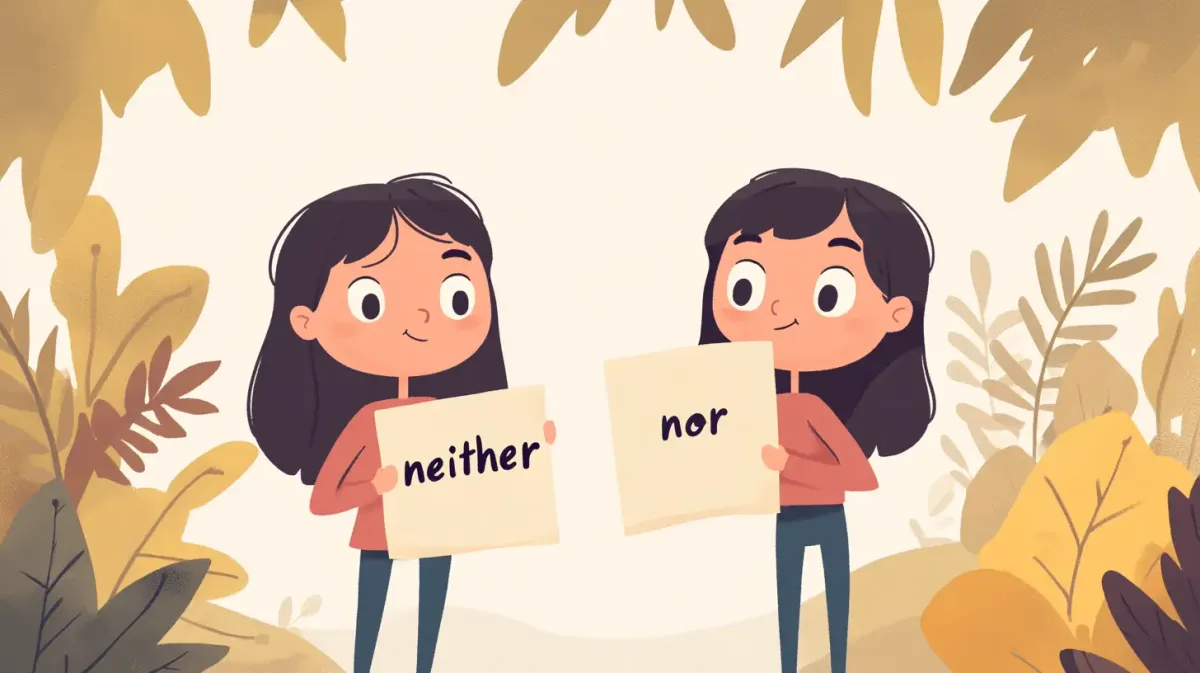Confused by neither/nor? You’re not the only one. This little pair of words might look simple, but they can be surprisingly tricky to use correctly. Let’s clear up the confusion with easy explanations, fun examples, and tips that actually stick.
What Does Neither/Nor Actually Mean?
Let’s start with the basics. Neither/nor is used to show that two or more things are not true or don’t apply. It’s a way of saying “no” to more than one option at the same time.
🟢 Neither A nor B = not A and not B
For example: “I like neither coffee nor tea.” Translation: I don’t like coffee. I don’t like tea.
So, if you’ve been wondering about the meaning of neither/nor, now you know—it’s a double negative, but in a very proper and elegant way.
How to Structure Neither/Nor Correctly
The use of neither/nor follows a simple formula, but it’s important to keep the elements balanced.
Structure:
- Neither goes before the first item.
- Nor comes before the second.
- Both parts should match grammatically (this is key!).
✅ Correct: Neither the manager nor the employees were happy.
❌ Incorrect: Neither the manager nor were the employees happy.
Let’s break this down visually:

Keeping your sentence elements parallel makes your English sound clearer and more natural.
Wait… Neither/Nor or Neither/Or?
This is a common mistake! Many learners ask if they can use neither/or, but the answer is no. It’s not correct.
Use:
- Either/or to talk about two positive possibilities.
- Neither/nor to reject both options.
✅ Either John or Mike will drive you.
✅ Neither John nor Mike has a license.
Remember: “or” only pairs with “either.” Never mix and match!
Real-Life Examples of Neither/Nor
Let’s look at some natural and useful neither/nor sentences you can use in conversation or writing:
- Neither my brother nor my sister is coming to dinner.
- I neither smoke nor drink.
- Neither the food nor the service was good.
- She neither called nor sent a message.
- Neither fear nor doubt will stop me now.
- They neither study regularly nor attend the lectures.
- Neither her jokes nor her stories made anyone laugh.
- We could neither confirm nor deny the rumor.
- Neither honesty nor loyalty should be taken for granted.
- I neither know the answer nor care about the result.
- Neither the manager nor the team responded to the complaint.
- She neither eats meat nor drinks alcohol.
Want to sound fluent? Vary the structure and use neither/nor with subjects, verbs, and full ideas. The more you experiment, the more natural it’ll feel.
Tips to Nail Neither/Nor Every Time
Here are some easy rules to remember when working on your neither/nor usage:
🔹 Keep it parallel. If the first part is a noun, the second should be too.
🔹 Verb agreement depends on the subject closest to the verb.
Example: Neither the students nor the teacher was ready.
🔹 You can use neither alone in short responses:
“Do you want pizza or sushi?” – “Neither.”
Mastering the use of neither/nor might feel tricky at first, but once you get comfortable with the structure, it becomes a super useful tool for sounding natural and polished in English. It's especially helpful for making your speaking and writing more precise. Practice with your own examples, try it in different sentence types, and soon you’ll be using neither/nor with total confidence.


















